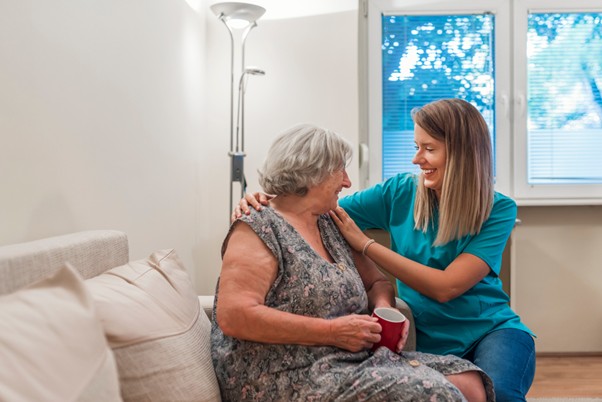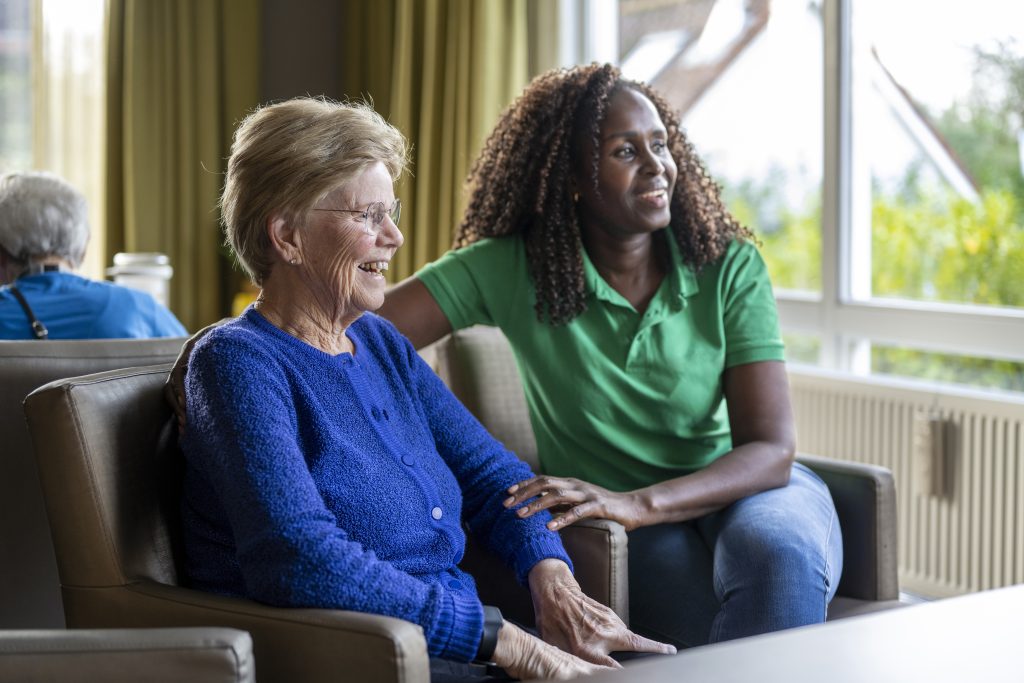
Aging is a natural part of life, and as our loved ones grow older, their needs change. While many seniors value their independence, there may come a time when they require additional support to maintain their quality of life. For many families, the challenge is recognizing when it’s time to seek companion care services to ensure their loved one remains safe, engaged, and well-cared for.
Companion care is more than just assistance with daily activities—it provides emotional support, social interaction, and a better overall quality of life for seniors who may be experiencing loneliness or difficulty managing everyday tasks. If you’re wondering whether it’s time to consider elderly companion care services, here are seven key signs that indicate your loved one may need extra support.
1. Increased Feelings of Loneliness and Isolation
Social isolation is one of the most significant concerns for aging adults. If your loved one spends most of their time alone, avoids social activities, or has lost interest in hobbies they once enjoyed, they may be experiencing loneliness. Studies show that prolonged isolation can lead to depression, anxiety, and even cognitive decline.
Companion care for seniors helps combat loneliness by providing meaningful interactions and companionship. Caregivers engage seniors in conversation, participate in activities they enjoy, and encourage them to stay socially active, reducing the risks associated with isolation.
2. Difficulty Managing Daily Tasks
As seniors age, routine activities like cleaning, cooking, and running errands can become increasingly difficult. You may notice signs such as an untidy home, expired food in the fridge, or difficulty keeping up with laundry.
Companion home care services offer assistance with light housekeeping, meal preparation, and other daily tasks, ensuring seniors live in a clean, safe, and comfortable environment. A caregiver can also help organize schedules, manage grocery shopping, and provide transportation to appointments.
3. Changes in Personal Hygiene and Grooming
A noticeable decline in personal hygiene can be a red flag that a senior is struggling with self-care. If your loved one is wearing the same clothes for days, neglecting to bathe regularly, or forgetting to brush their hair or teeth, they may need additional support.
With elderly companion care services, a caregiver can gently encourage and assist with grooming and hygiene, ensuring seniors maintain their dignity and well-being without feeling overwhelmed or embarrassed.
4. Forgetfulness and Missed Appointments
Mild forgetfulness is common with aging, but if your loved one is frequently missing doctor’s appointments, forgetting to take medications, or losing track of important tasks, it may be a sign of cognitive decline.
Companion care services provide much-needed structure and reminders to keep seniors on track. Caregivers can help manage schedules, set medication reminders, and ensure that seniors attend necessary appointments, reducing the risk of health complications due to forgetfulness.
5. Sudden Mood or Behavior Changes
Has your once cheerful loved one become irritable, withdrawn, or disinterested in socializing? Mood swings, increased frustration, or a noticeable change in personality can indicate that they are struggling emotionally or mentally.
A compassionate companion caregiver offers emotional support, engaging conversations, and social activities that promote mental well-being. Having someone to talk to and share daily experiences with can make a significant difference in their happiness and overall outlook on life.
6. Unexplained Weight Loss or Poor Eating Habits
If your loved one is losing weight unexpectedly or neglecting their nutrition, they may be struggling with meal preparation or simply forgetting to eat. Seniors who live alone are more likely to skip meals or rely on processed foods that lack essential nutrients.
Companion home care services include meal planning and preparation, ensuring seniors receive well-balanced meals that meet their dietary needs. Caregivers can also encourage regular hydration and help with grocery shopping to ensure a stocked kitchen with healthy food options.
7. Increased Risk of Falls or Mobility Challenges
As mobility declines with age, seniors become more vulnerable to falls, which can lead to serious injuries. If you notice unsteady walking, difficulty getting in and out of chairs, or an increased fear of falling, it may be time to consider additional support.
Caregivers providing companion care for seniors help with mobility assistance, ensuring that seniors move around safely in their homes. They can also provide transportation to medical appointments, help with light exercises, and encourage physical activity to maintain strength and balance.
Choosing the Right Companion Care Services for Your Loved One
Recognizing these signs is the first step in ensuring your loved one receives the care and companionship they need. If any of these indicators sound familiar, it may be time to explore companion care services to support their well-being while allowing them to age comfortably at home.
When selecting elderly companion care services, consider the following:
- Personalized care: Ensure the provider tailors their services to meet your loved one’s specific needs and preferences.
- Compassionate caregivers: Look for a company that prioritizes caregivers who are patient, friendly, and trained in senior care.
- Flexibility: Choose a provider that offers part-time, full-time, or live-in care options depending on your loved one’s situation.
- Reputation and reviews: Research customer feedback and testimonials to find reliable companion home care services in your area.
Give Your Loved One the Support and Companionship They Deserve
Aging should never mean facing daily struggles alone. If you’ve noticed signs that your loved one is experiencing loneliness, struggling with daily activities, or facing health risks, companion care services can make a world of difference in their quality of life.
Ace Home Care provides compassionate elderly companion care services, ensuring seniors receive the support, companionship, and assistance they need to maintain their independence. From engaging in social interactions to helping with daily tasks, our caregivers are dedicated to enhancing the lives of seniors in a way that preserves their dignity and happiness.
Book a free consultation with Ace Home Care today! Learn how our personalized companion home care services can provide comfort, security, and companionship for your loved one. Contact us now to take the first step toward a happier, healthier aging experience!


